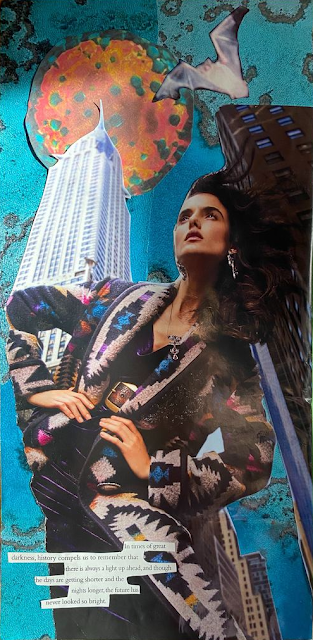Droplet.
Hand-cut collage on cardboard.
These microscopic particles are smaller than a strand of hair, but sometimes can be as large as the size of a grain of fine beach sand. Coughing sends them traveling at speeds that rival a car on a freeway.
Scientists check for these particles in the air to determine how long they can survive. Some are vivid, persisting for up to 3 hours in a hospital room. Certain wishes catch air currents and travel far beyond what we might expect.
When we open our mouths to yawn, we release our exhaustion. As the jaw slowly unhinges, the lack of rest crawls out head-first, secreting greyish-green or black before the arms emerge. The contortion of the mouth puts pressure on the salivary glands, and it can cause the eyes to tear.
When we're shocked, our mouths gape and our eyes grow round. It's a signal to others that there's danger. When the doorbell rings, the dog barks, the cats hide, and the children run to the windows to see who is there. No one opens because there could be particles.
We croak open our throats like we've been filleted, waiting for the opportunity to fold ourselves down. It's gotten easier over the weeks, but it's still uncomfortable when your mind says you can't breathe. You can, though - you just don't like to.


Comments
Post a Comment